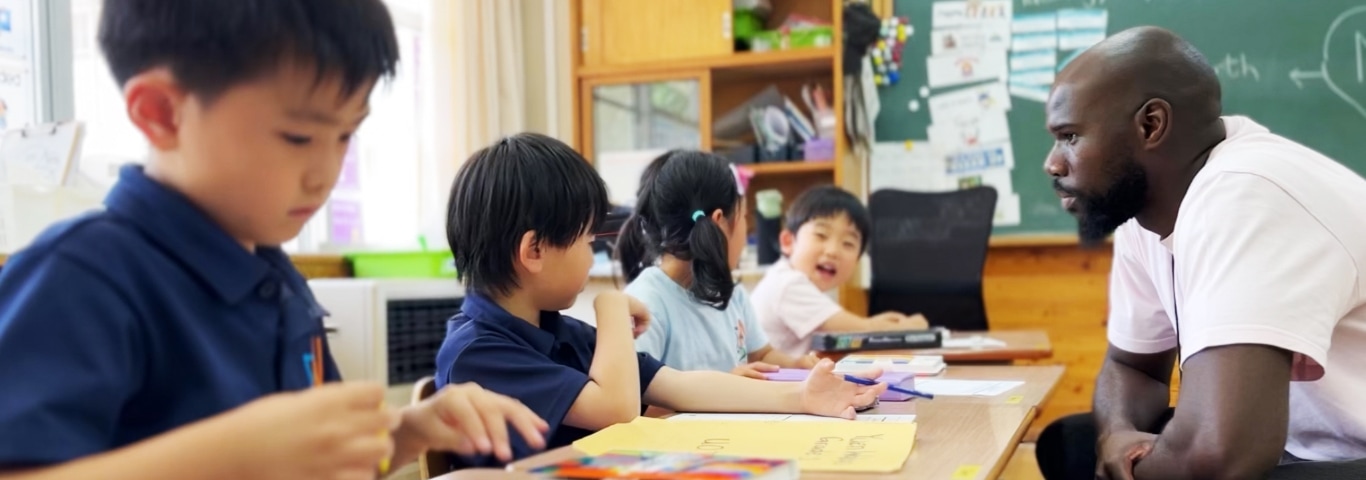Curriculum Planning Vol. 1

In designing the curriculum for our upcoming middle school, we want to make sure that the transition is smooth and natural. We want kids to be able to use and build on the skills which have been taught throughout their time at ISN. To create a middle school which fits into the ISN family of schools, we of course want to make sure that the educational approach is consistent. That consistency lies in our International Baccalaureate-supported inquiry-based curriculum.
Those of you who have students who have studied with us before have heard why we chose to go with inquiry-based learning for preschool and elementary school. Many of these same benefits naturally extend into middle school, as well as some more specifically beneficial to kids at this unique age.
So what are those benefits? For starters, it continues to build on your children’s natural curiosity and critical thinking skills, leading to a deeper understanding of the world and the topics that interest them. From the day they first learn the word, children never stop asking, “why?” At this stage in their development, that “why” goes deeper than ever before. Inquiry-based learning actively encourages students to dive into that “why.” By questioning, researching, and then evaluating what they find, they develop equally deeper answers and understandings. Through this research process, they utilize and build on their critical thinking and analytical skills.
Students are given freedom to pursue the answers to their chosen questions. While teachers are available for guidance and support, much of the learning process is in the students’ hands. Students develop self-management skills, and are thus given responsibility over their own learning. In this way, they develop independence.
At the same time, they are also given ample opportunity to develop communication and collaboration skills. There is often overlap between individual students’ topics, and students can work together to both share and debate ideas while learning how to progress as a team. Through this collaboration, and throughout the presentation stage of their research, students learn how to explain their thinking and ask clear questions for better understanding.
The openness and freedom students have to pursue their answers opens them up to a variety of subjects. For example: exploring the issue of climate change requires a scientific understanding of the changes occurring, along with an ability to properly gather and mathematically analyze the necessary data. A student can then research the social impact of these changes, and think about what actions need to be taken, from individuals up to national governments and international organizations. This also shows students how they’re not just learning random facts in a classroom, they are learning things with real-world implications.

Ultimately, and most importantly, these skills combine to prepare pre-teens and early teenagers for the world they will soon be joining as adults. Curiosity, creativity, flexibility, and problem-solving skills are the most vital skills they will need as they turn towards higher education and joining the international community.
This is all high-level stuff! What does this specifically mean for our school, and for your child? Stay tuned!
–Josh
来年度より始まる中学校のカリキュラムをデザインするにあたり、私たちは小学校からのつながりが自然でスムーズになることを大切にしています。これまでISNで学んできた力を、中学校でもしっかりと活かし、さらに伸ばしていけるようにしたいと考えています。ISNファミリーの一員としての中学校をつくるためには、教育のアプローチに一貫性を持たせることがとても大切です。その中心にあるのが、国際バカロレアの理念に基づいた「探究型カリキュラム」です。
すでにISNで学んでくださっているご家庭は、なぜ私たちが幼児部や小学校で探究型学習を選んだのかをご存知かと思います。その数多くの利点は、中学校にも自然に広がっていきます。そして、中学生という特別な年齢にとってさらに有効なメリットもたくさんあるのです。
では、そのメリットとは何でしょうか。
まず第一に、お子さまの「自然な好奇心」と「批判的思考力」をさらに育み、世界や自分が興味を持つテーマについてより深く理解できるようになります。子どもたちは言葉を覚えたその日から、ずっと「どうして?」と問い続けますよね。中学生の年齢になると、その「どうして?」はこれまで以上に深いものになります。探究型学習では、この「どうして?」にとことん向き合い、考えを深めることを積極的に後押しします。問いを立て、調べ、そして見つけた情報を評価することで、子どもたちはより深い答えや理解を自ら築いていくのです。その過程の中で、批判的思考力や分析力をさらに磨いていきます。
また、生徒たちは自分で選んだ問いに対する答えを追究する自由が与えられます。先生は常にサポートやアドバイスをしますが、学びの中心は生徒自身の手に委ねられます。自分の学びに責任を持つことで、自己管理の力を養い、主体的に学ぶ姿勢を身につけていきます。こうして自立心が大きく育まれていきます。
さらに、コミュニケーション力や協働する力を伸ばす機会もたくさんあります。生徒同士のテーマには重なりが出てくることが多く、アイデアを共有したり、議論したりしながら、一緒に学びを進めることができます。共同研究の場や発表のステージを通して、自分の考えをわかりやすく説明したり、よりよい理解のために明確な質問を投げかけたりする力も自然と育っていきます。
生徒たちが自由に問いを探究できることで、学びの幅はぐんと広がります。たとえば「気候変動」というテーマを探究する場合、まずは起こっている変化を科学的に理解し、必要なデータを正しく収集し、数学的に分析する力が必要になります。そのうえで、こうした変化が社会に与える影響を調べ、個人から国家、そして国際機関に至るまで、どのような行動が求められるのかを考えることができます。こうした学びを通して、生徒たちは「教室で学んでいるのはただの知識ではなく、現実の世界とつながっている大切なことなんだ」と実感できるのです。
そして最終的に、そして最も大切なのは、これらのスキルが組み合わさって、思春期にさしかかる子どもたちが将来大人として向き合う世界への準備になるという点です。好奇心、創造力、柔軟性、問題解決力――これらは子どもたちがこれから高等教育へ進み、国際社会の一員となっていくうえで欠かせない力です。
少し難しそうに聞こえるかもしれませんね。でも、これが私たちの学校、そしてみなさんのお子さまにとって実際にどのような意味を持つのか――その答えは、次回に!どうぞお楽しみに。

